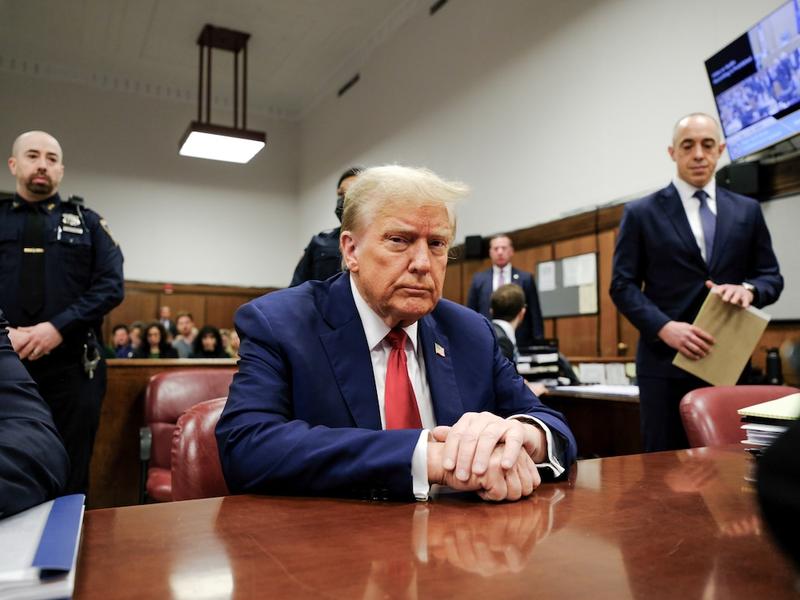
What are the electoral implications of Justice Anthony Kennedy’s announcement that he will retire from the Supreme Court? With about a third fewer people voting in midterm than in presidential elections, who votes and who stays home this November is especially important. On April 10, this column noted the disparity between the higher level of interest and passion among Democrats compared to Republicans, asking the question, “So what could turn this around? What could build Republican intensity and turnout to something comparable to what seems to be forming for Democrats? There seems to be three possibilities: guns, impeachment, and a Supreme Court vacancy.”
The column suggested that so far this cycle, the gun issue had animated the Left and those who support gun-control measures, and had not ignited a symmetric fear among those who oppose additional gun laws. It is not obvious that a real fear among those worried about gun rights has taken hold. This is a reversal from the pattern for decades, when more Americans were pro-gun control but the intensity was on the anti-gun control side, led by the National Rifle Association. Mass shootings at Parkland in Florida, on the Las Vegas strip, and in San Bernardino, California, among other places, shifted this balance.
The second possible trigger for increased GOP energy was the impeachment issue. The more the word impeachment is used on cable news and the internet, the more it wakes up slumbering Donald Trump voters who have shown little interest in the midterm election with their guy’s name not on the ballot. Another possible spark for GOP turnout: incendiary comments and actions made by some, notably Rep. Maxine Waters, who advocated public ostracism of certain people who work in the Trump administration, effectively creating a political apartheid. I guess each side has their own cable networks and internet sites; maybe they should eat in different restaurants too.
Then, that column noted, “The third issue that could animate conservative voters would be a Supreme Court vacancy. Democrats are already motivated, and an opening on the Court might well trigger a corresponding stimulus with the Right. Since the Supreme Court is composed of four liberals, four conservatives, and one swing vote, it almost doesn’t matter too much politically which justice steps down—any vacancy would trigger warfare.”
Now with Kennedy’s retirement, the fight has begun. We are starting to hear terms like “turbo-charging” and “super-charging,” of party bases. If you believe that Democrats are already energized, then the more that this will engage previously lethargic Republicans, the closer this election will be. But maybe not.
The implications of the news are both complicated and uncertain. Some theorize that a Supreme Court vacancy fight could make life more difficult for the five Democratic senators up in ruby-red states that voted for Trump by 19 points or more: Joe Donnelly (Indiana), Heidi Heitkamp (North Dakota), Joe Manchin (West Virginia), Claire McCaskill (Missouri), and Jon Tester (Montana). While McCaskill and probably Tester will stay in line with their party, this puts a lot of pressure on all five as they are in states where Trump and his agenda remain quite popular.
But we could see this Supreme Court fight break in different directions in the two chambers. Keep in mind that the competitive Senate states this year are in a very different America—with large rural and small-town populations and Trump’s popularity greater than in the nation as a whole—while the competitive House races are more in suburban districts, particularly middle- and upper-middle-class areas where Trump is toxic. There is also a spirited debate over which side would benefit or be hurt more by a preelection Senate vote or, for that matter, one in a lame-duck session of Congress.
Stepping back from the electoral implications, it’s hard for a nonpartisan not to see this as a case of Democrats being forced to reap what they sowed. The threshold for confirming all federal judges was 60 seats, and the prevailing view was that the federal judiciary should be populated by nominees who could draw a broader base of support than a simple majority. But in President Obama’s second term, on roll-call vote 242 on Nov. 21, 2013, Senate Democrats, led by then-Majority Leader Harry Reid, pushed through a rule change on a 52-48 vote, allowing nominations to pass with just a simple majority. All Senate Democrats except three—Manchin, Carl Levin of Michigan, and Mark Pryor of Arkansas—voted to drop the threshold to a simple majority, for all federal judgeships below the Supreme Court level, with all Republicans voting against the change. That was the Garden of Eden, biting-into-the-forbidden-apple moment. Then, on April 6, 2017, after Democrats had lost their Senate majority in the 2014 midterm election and after Trump replaced Obama in the White House, Senate Majority Leader Mitch McConnell and his GOP colleagues simply extended that lower threshold to a majority for the high court as well.
Yes, McConnell and Senate Republicans held U.S. Circuit Court of Appeals Judge Merrick Garland hostage for the last year of the Obama presidency and the McConnell move last year enabled the GOP to shove through Neil Gorsuch, and maybe this would have happened anyway had Democrats not moved to change the rule back in 2013, but we will never know. We do know Democrats deprived themselves of the moral high ground by taking the first step. Things have certainly changed since before the Senate’s 1987 rejection of the Supreme Court nomination of another U.S. Circuit Court of Appeals judge, Robert Bork, a Ronald Reagan pick. Prior to then, Supreme Court nominees were pretty much only rejected on matters of ethics or lack of qualifications, not on judicial or political philosophy or simply on partisan grounds. Partisans hate to hear such things—they like things clear-cut, white-hats-versus-black-hats—but if you don’t like what’s going on, what is happening now is a continuation, not a new norm.
It appears highly unlikely that Democrats can prevent another Trump nominee from joining the Supreme Court. The real questions are just how conservative that person will be and when that person will be sworn in. Republicans hold only 51 Senate seats, and there is uncertainty about Sen. John McCain’s ability to come back for a vote or have a replacement who would be in office in time for a vote. So this makes Republican Sens. Susan Collins, Bob Corker, Jeff Flake, and Lisa Murkowski incredibly important. In the absence of McCain, the GOP can’t afford a single defection unless they can coax on board one of the three Democrats who broke ranks and voted for Gorsuch’s nomination last year— Heitkamp, Manchin, or Donnelly. Don’t expect much clarity soon.
This story was originally published on nationaljournal.com on June 29, 2018










Subscribe Today
Our subscribers have first access to individual race pages for each House, Senate and Governors race, which will include race ratings (each race is rated on a seven-point scale) and a narrative analysis pertaining to that race.